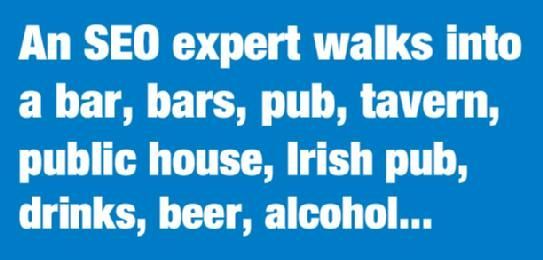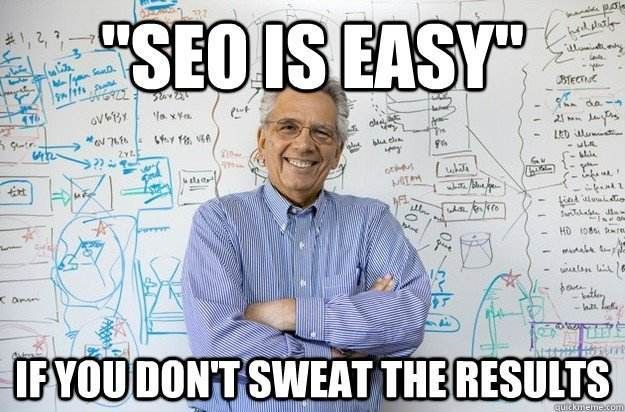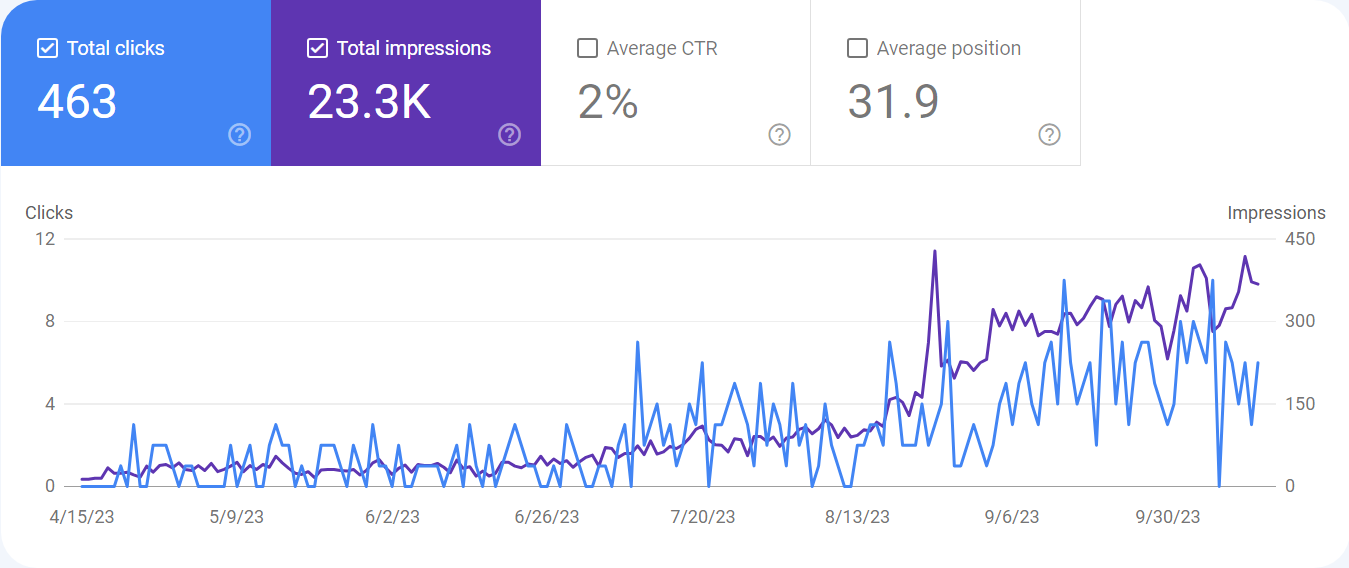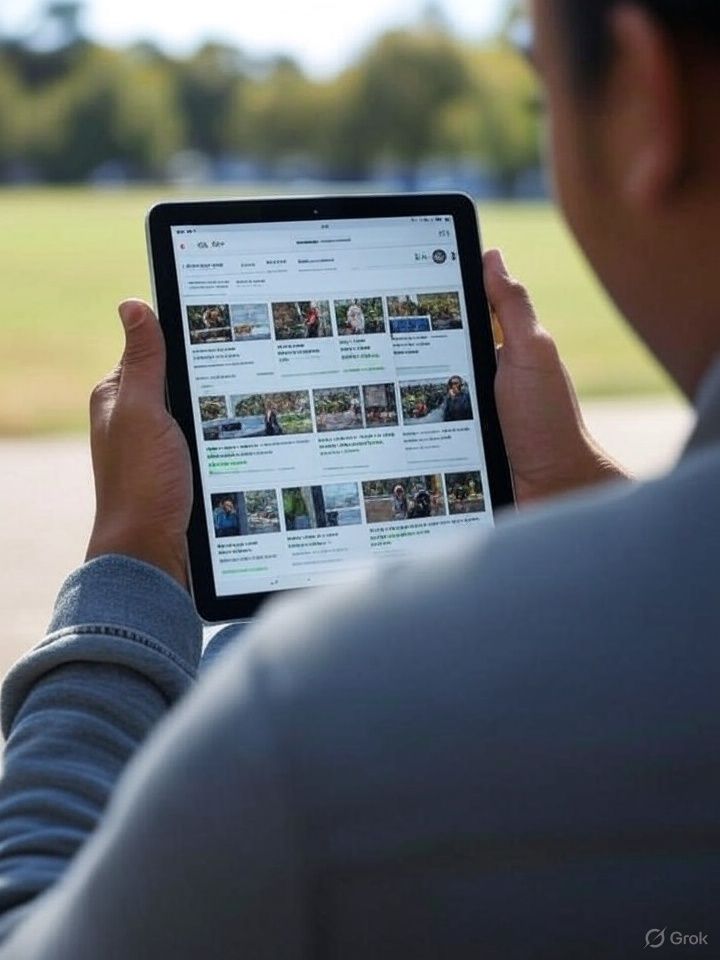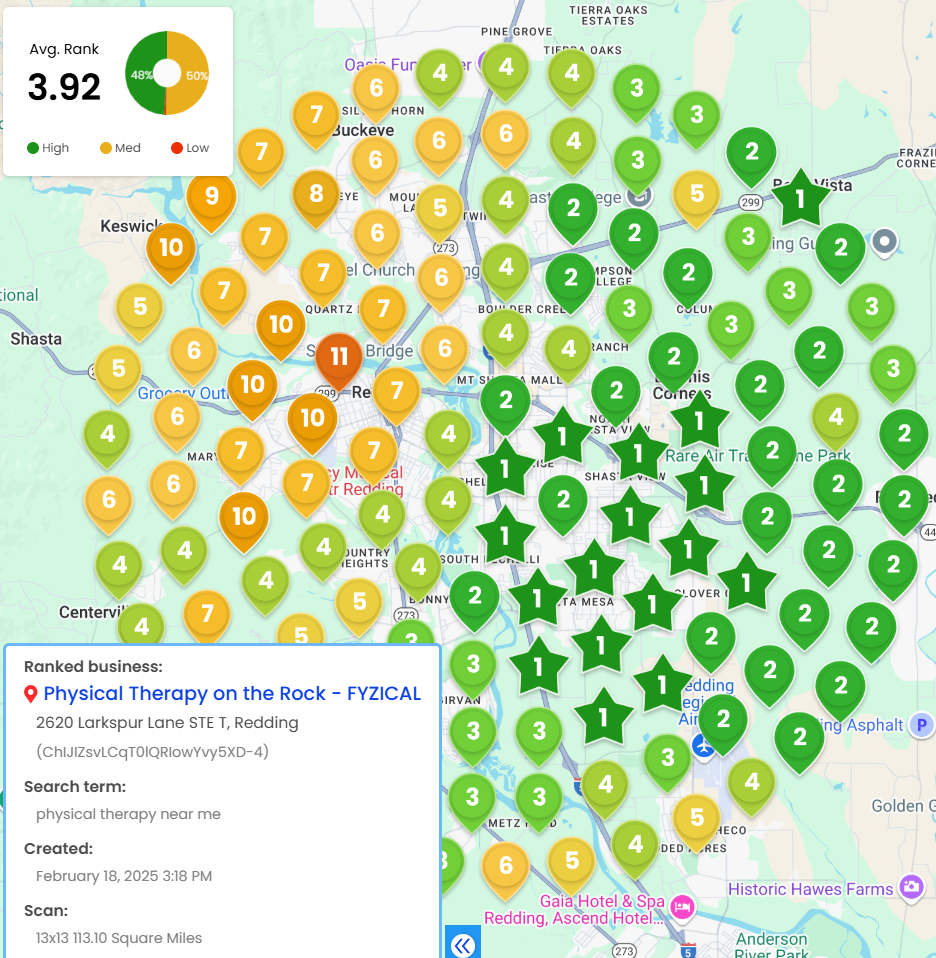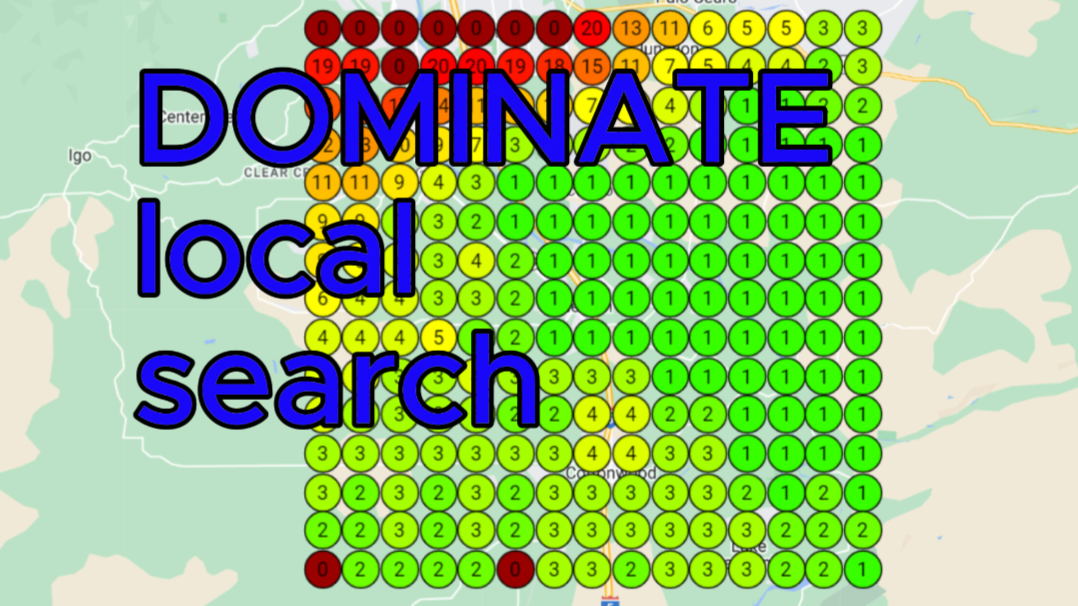Map Pack SEO Techniques & Local SEO Pitfalls to Avoid (2025)
What does a local SEO specialist do month after month? What are the techniques that work best for local search optimization?
Everyone knows, one does not simply "get to the top of Google." So how do you do it? What are the tasks involved? What are some things to avoid? In this article we hope to clarify what exactly it is that we do, as well as provide some helpful tips on pitfalls to avoid while doing local SEO.
In a previous article, we covered the pillars of local SEO, the main things that move the needle in organic & local search results. We aren't going to re-hash the same details here, instead we're going to assume you already have all the basics covered, and are looking for tips on the ongoing SEO process. We'll even pull back the curtain and talk a bit about some of our processes and tasks we do for clients on an ongoing basis.
Local SEO Map Pack Techniques
When it comes to local SEO and map pack techniques, there are two categories. Category one is all the basics like we covered in the article we linked above. This is what I call "SEO 101" stuff. The kind of SEO tips that YouTube is flooded with, everyone repeating the same basic tips. This collection of "accepted" techniques are essentially those that carry no risk, and also have the support of 90+% of SEO specialists. There's no debate or controversy about them, everyone agrees they're helpful, and as a result, everyone knows the same tips.
The second category contains more controversial & risky techniques that may cause significant debate about their effectiveness, as well as newer & more experimental tactics. The experimental & controversial aspects don't bother us, however the risk does. We will never recommend (or do) anything that may compromise a company's Google Business Profile. Any business owner that has had their Google Profile deleted or suspended knows how much of a nightmare it is, so that's a very important factor.
With the disclosure out of the way, let's get into it.
Local SEO Technique #1 - Consistency
Not exciting, I know. However it is the single most important factor to ensure a successful local SEO campaign. Do something every single day, even if it's not a big thing.A successful SEO project is the cumulative effect of thousands of small tasks over time. The company that does one thing every day will absolutely outperform the one that optimizes and/or releases content in spurts every so often. Not even close. This is the reason local business owners hire us, not because what we do is so incredibly difficult, it's because it takes enough time away from the average business owner to start feeling like a part-time job.
It's that consistency plus the local SEO experience & knowledge we've gained over the past decade that allow us to get great results.
Local SEO Technique #2 - Content
As far as tasks are concerned, content will be a main focus. By that I mean blogs, social media posts & engagement, videos, etc. There should be a consistent stream of that being produced. Not necessarily all of them consistently, but the more the better.
I often say SEO can stand for other things, such as"search everywhere optimization," meaning, everyone uses the internet differently, some people get more info from social media, others prefer to dig around in Google result pages, some people like to learn through YouTube, and so on. By casting a wide net, and trying to be active in producing useful content for each of those platform types, you're far more likely to have a potential client stumble across your business at just the right time.
The other huge benefit to this technique is that you're growing a bigger and bigger footprint online. When you've linked everything together properly, you're showing the Google algorithm that you're growing in relevance for [your industry] in [your location], and the algorithm rewards you.
My best shortcut tip for content creation is to use Google Trends and AI tocreate content clusters for highly searched terms (or FAQs) related to your industry. Then produce longer content around the whole cluster (like an overview), and then smaller pieces of relevant content to compliment the longer form content.
You can pretty easily make 2 or 3 content clusters related to your industry, each with 10-15 topics, each of which can be 1 blog page (as an example). Break those blog pages up into 1 or two good social posts or video shorts and you've got roughly100 pieces of content that you can sprinkle out little by little.
It will take a bit of time to "find your audience" on social media so-to-speak, so make sure you're first building this all out on your business website to increase industry relevance and local authority. Don't forget to incorporate local content whenever possible in order to continually reiterate your location (or service area) to the search algorithms.
Pro Map Pack Tip -
Posting daily human-generated updates to your Google Business Profileabsolutely does help increase your ranking position in the search results, despite most local SEO specialists claiming otherwise: Here's the study to prove it
Local SEO Technique #3 - Local Signals
We already covered the content, the other element of the local search algorithm are local signals. There are an array of different things that qualify as local signals, in fact, your Google Business Profile tracks many of them for you such as phone calls, direction requests and website clicks from the profile.
There are other forms of local signals, and there are a few ways to "generate" local signals as well. We won't get too far into some of our proprietary process here, but the basic idea is a combination of NAP & Map saturation, tiered linking, and cloud stacking.
Essentially what it boils down to is a steady flow of local signals, geo-relevance and brand mentions.This goes beyond the basic "local SEO 101" tip of getting business citations, we're going way past that, building out entities to keep your NAPs, local signals, brand mentions & geo-relevance constantly flowing through the Google machine crawlers, and then stacking those on top of one another over and over again for continuing effect.
The more DIY-friendly version of this tactic is the "search everywhere optimization" we referenced earlier in this article. The same cause and effect apply. You're keeping your business brand mentions, location data, and everything possible constantly being fed into the search engine crawlers.
Search engines are paying attention to this user input. Imagine you're a search engine... who would you afford more favor in the search results, *company A*, whose company gets mentioned & searched by name 50 times a month locally, or *company B* whose business gets mentioned/searched 5 times a month? See how that works?
Pro Map Pack Tip -
One way to establish location relevance online is toadd location pages to your website. This works really well for service-area-businesses that don't have a location pinned on the map, but they want to show up in the results for multiple nearby cities. Make pages that go into a bit of detail about those cities, and add info about the services you provide.
You can also embed geographic coordinates into image files before uploading them. You can use a tool like this one to do it. It is rumored that Geo Tag data is stripped from images during the upload process to Google Business Profiles, although nobody can 100% confirm that. It does however work great for websites and some social media platforms.
Combine these two tactics to have location pages with original images that are Geo-tagged with coordinates within those areas.
Local SEO & Map Pack Pitfalls to Avoid
Staying within the lines and consistently using basic local SEO tactics is way better than to risk your Google Business Profile getting penalized or deleted by chasing cheat codes
In the online world of SEO tips, you're not going to get anything groundbreaking for free, or even cheap. Here are a few tactics to avoid like the plague, and a few tips for how to choose a good local SEO specialist like Golden Oak.
Avoid Buying Reviews at ALL COSTS
I don't know where the myth came from, but there are those that believe the search algorithm is only influenced by reviews, and nothing can be further from the truth. While reviews are very important for social proof, they only influence the algorithm a little bit overall.
Buying reviews might give you the "warm and fuzzies" when you see that review number go up, but it's not a good look at all. Purchased reviews are always obviously fake, off topic, and are typically left by brand new Google accounts.
Google tracks user accounts, and is always hunting for bot farms & fake accounts. They also track the frequency that local businesses accumulate reviews. Imagine you're Google, and you see a company with 50 reviews, that normally averages between 1 and two new reviews a month... now this company just got 25 reviews in one month from suspiciously new accounts... Just don't.
Avoid Being Oversold by SEO Promises
I've been in this industry for 10 years. I've seen all the sales tactics, the over-promising and of course the under-delivering. The main point I'll make here is that, when it comes to Local SEO, if it seems too good to be true, it is.
The new tactics that are reeling in poor unsuspecting business owners in 2025 are: "free until [this]" or "don't pay until [that]." They're 100% traps and I'll tell you why.
Example 1: "Don't pay until you rank"
This sounds great on the surface, right? It could be, but it's not. Essentially this scam consists of your local SEO company ranking you for every keyword possible so they can charge you. The best part? They're not using good old SEO tactics that are tried and true, they're using traffic bots.
Basically they have computers running through VPNs to change their IP address constantly, and perform searches through Google that click & interact with your profile, giving the impression that you're getting traffic. In turn the algorithm rewards you and increases your rank for the applicable keyword. If they're good at it, they can increase your rank very quickly.
The SEO company can report rank increases, and then charge the client. It's typically a lot because it's a work-before-pay type of deal. The problems really start after you pay. After receiving payment for [whatever keyword], the company stops running the traffic bot script for that keyword, Google sees a big immediate drop in traffic for that term, and subsequently drops your rank. Congrats, you paid for nothing.
Example #2: Free website, just pay for the results
This one is pretty tricky, and can get many business owners to fall for it. Yes, they'll make you a website, but only after [SEO company] checks out your local industry and search volume. They build you a site for free, but it's got a different phone number... What gives?
Oh, they're just using that number to track the business leads that come from the site... ok... the business calls and inquiries start to come through the website (and possibly even Google Profile) that [SEO company] created... and then the other shoe drops.
The website build was free because [SEO company] owns it, they're unwilling to sell it, but they are willing to sell you the rights to receive all the business leads from it, for the low-low price of $1000 a month. Now it will cost you $12,000 a year to use your free website.
Tips For Choosing a Local SEO Specialist
There's a few guidelines we recommend business owners follow when choosing a local SEO specialist to work with. For instance, I've noticed that one of my competitors here locally has a digital marketing agency where they list local SEO as their main service.
However, all their work seems to be website-focused, and most of their clients aren't in the map pack for their main money keywords. On top of that, this is an agency staffed with 7-10 people, charging significantly more than we do, while underperforming on their local map pack SEO, which is supposed to be their main service.
While your website is very important for your local map pack SEO, it's only a fraction of what needs to get done, and many digital marketers aren't experienced or knowledgeable enough to know how to do the rest of those tasks, so they focus on selling websites and content.
Ask for local map pack SEO results. If any company tries to downplay the importance of local map results, or doesn't already have a local SEO rank tracking tool to use for their client projects, run, don't walk away.
The other thing to look out for when choosing a local map pack SEO specialist is to avoid looking for the cheapest service. I often talk with clients only after they've already gone through several "bargain SEO" people.
Once I have a look behind the curtain at citation NAPs, socials, website, and everything else, it's often clear that, not only had they not accomplished anything for the client, they actually caused harm.
I've had clients over the years that end up paying me for a few months in order to clean up the mess, just fixing, undoing, and re-doing everything done by the previous bargain basement SEOs, and just doing that often is enough to get the clients' local business ranking perked up nicely.
That's enough typing for now. My hands and wrists are tired because this is all human-generated content I typed out on my Lenovo ThinkPad. Thanks for coming to my TED Talk.


